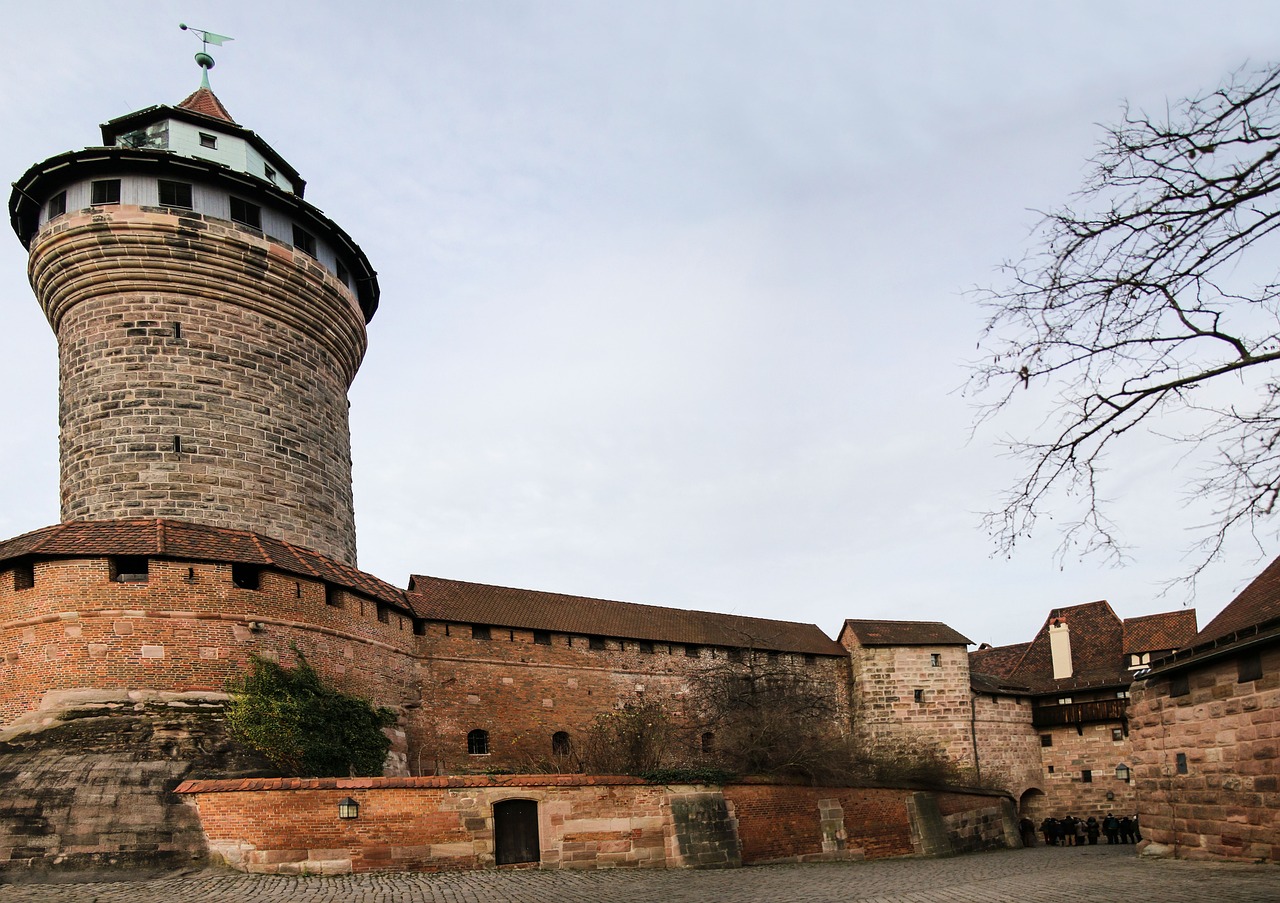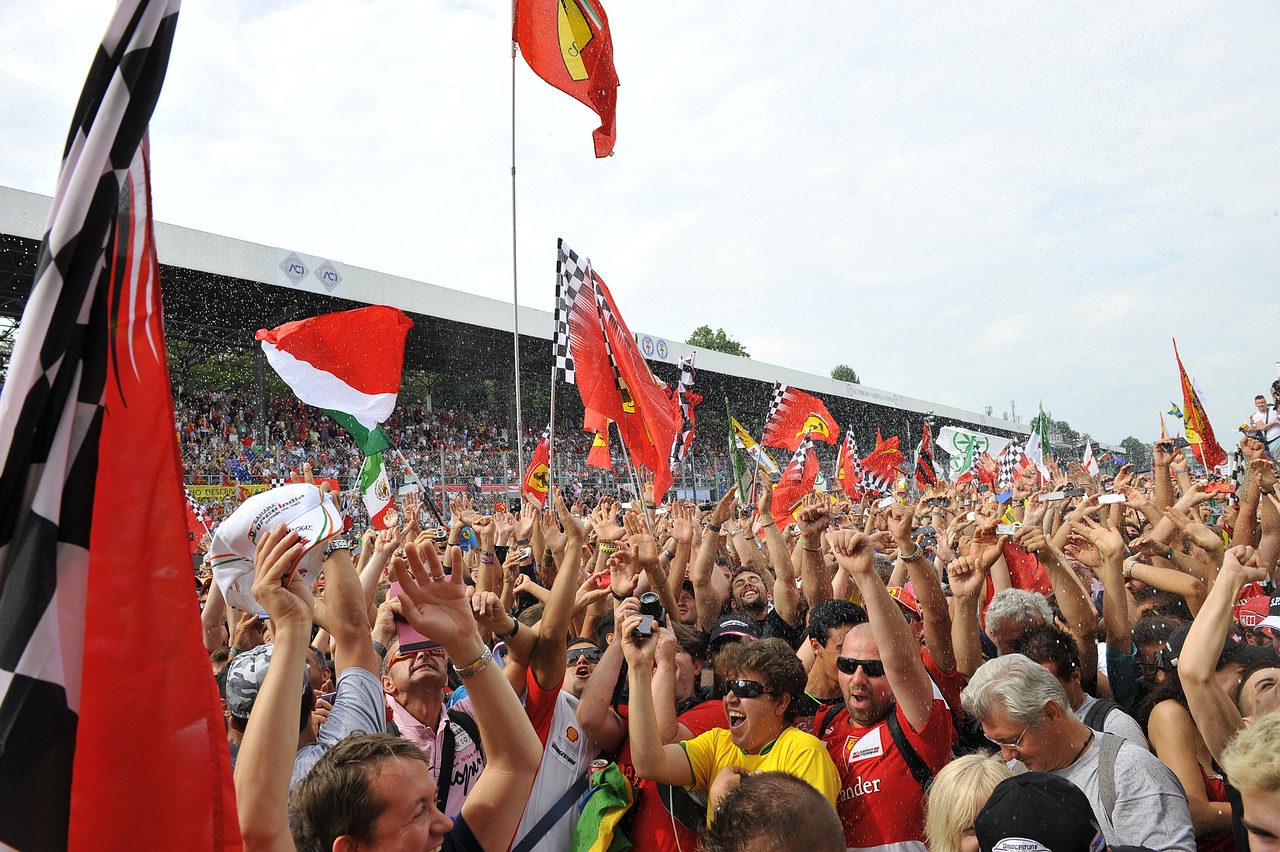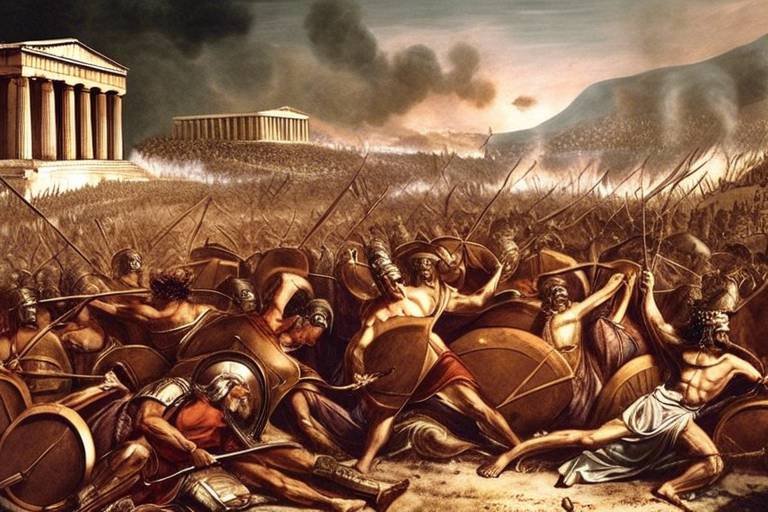The Causes of the Great War - A Historical Overview
Causes of the Great War, also known as World War I, were complex and multifaceted. This article provides an in-depth analysis of the key factors that led to the outbreak of one of the deadliest conflicts in human history.
Militarism played a significant role in escalating tensions in Europe. The rapid arms race among European powers created a militaristic culture that prioritized military strength and readiness for war. This emphasis on military preparedness heightened suspicions and fueled a sense of competition among nations, ultimately contributing to the outbreak of the Great War.
Alliances formed a complex web that entangled major powers in Europe. These alliances divided the continent into two opposing camps, where nations were obligated to support their allies in times of conflict. While intended to provide security, these alliances paradoxically increased the likelihood of war as a result of the interconnected nature of European politics.
The era of imperialism saw European powers vying for colonies and resources across the globe. This intense competition exacerbated rivalries and created a volatile environment where disputes over territories often led to confrontations. The scramble for colonies not only heightened tensions but also laid the foundation for future conflicts as nations sought to expand their empires.
Nationalism, characterized by strong patriotic feelings and a sense of superiority, fueled aggressive expansionist policies among European nations. The rise of nationalist sentiments contributed to a climate of heightened tensions and rivalries, as countries sought to assert their dominance and protect their interests. This wave of nationalism played a crucial role in the lead-up to the Great War.
The assassination of Archduke Franz Ferdinand of Austria-Hungary in Sarajevo served as the immediate spark that ignited the Great War. This event triggered a series of diplomatic crises and ultimatums, eventually leading to the declaration of war. The assassination highlighted the fragility of the European balance of power and set off a chain reaction that culminated in a global conflict.
Economic factors also played a significant role in the lead-up to the Great War. Rivalries over trade routes, markets, and access to resources intensified as industrialized nations competed for economic supremacy. These economic tensions, coupled with the desire to secure strategic interests, pushed countries towards conflict as they sought to safeguard their economic prosperity.
The failure of diplomacy to resolve conflicts peacefully further exacerbated the situation. Misunderstandings, miscalculations, and a lack of effective communication among nations hindered diplomatic efforts to prevent war. The breakdown of diplomatic relations and the inability to find common ground only served to escalate disputes and push the continent towards the brink of war.
Technological advancements in warfare revolutionized the nature of combat during the Great War. Innovations such as machine guns, tanks, and chemical warfare drastically increased the destructive power of armies. These advancements not only made warfare more deadly but also changed the tactics and strategies employed on the battlefield, leading to unprecedented levels of destruction and loss of life.

Militarism
Militarism played a significant role in setting the stage for the Great War. The arms race that gripped Europe in the late 19th and early 20th centuries created a climate of fear and suspicion among the major powers. Each nation sought to outdo the other in military might, resulting in a dangerous escalation of tensions. The belief in the supremacy of military power and the glorification of war permeated the societies of the time, shaping a culture that valued aggression and conflict readiness above diplomacy and peace.
As countries poured resources into expanding their armies and navies, the specter of war loomed ever larger on the horizon. Military leaders wielded significant influence in political decision-making, advocating for aggressive foreign policies and preemptive strikes to safeguard national interests. The relentless pursuit of military strength not only drained the economies of the European powers but also created a sense of inevitability about the outbreak of a major conflict.
The militaristic mindset was not confined to the military establishment alone but permeated all levels of society. National pride became intertwined with military prowess, and citizens were encouraged to view war as a noble endeavor in service of their country. The glorification of military heroes and the romanticization of battle further fueled the flames of militarism, making the prospect of war seem not only likely but also desirable to many.

Alliances
Causes of the Great War, also known as World War I, were complex and multifaceted. This article provides an in-depth analysis of the key factors that led to the outbreak of one of the deadliest conflicts in human history.
Alliances played a crucial role in the lead-up to World War I, creating a tangled web of interlocking commitments that set the stage for conflict. Major powers in Europe, seeking security and strength in numbers, formed alliances that divided the continent into two opposing camps: the Triple Entente (comprising France, Russia, and Britain) and the Triple Alliance (including Germany, Austria-Hungary, and Italy).
These alliances were meant to deter aggression by presenting a united front against potential threats. However, they also had the unintended consequence of escalating tensions, as each nation felt obligated to support its allies in case of a conflict. This system of alliances turned a regional dispute into a global conflagration, as the domino effect of one nation being drawn into war pulled others along with it.
The intricate network of alliances created a sense of entrapment, where a single spark could ignite a continent-wide conflict. When Archduke Franz Ferdinand of Austria-Hungary was assassinated in 1914, triggering a chain reaction of declarations of war, the alliance system ensured that what started as a localized incident in the Balkans quickly engulfed the entire continent in war.
- What were the main alliances in World War I?
The main alliances were the Triple Entente (France, Russia, and Britain) and the Triple Alliance (Germany, Austria-Hungary, and Italy). - How did alliances contribute to the outbreak of war?
Alliances created a complex web of commitments that escalated conflicts and turned a regional dispute into a global war. - Why did nations feel obligated to support their allies?
Nations felt obligated to support their allies due to the mutual defense agreements and the fear of being isolated in case of conflict. - What was the impact of alliances on the course of World War I?
Alliances intensified the scale and scope of the war, drawing in more countries and prolonging the conflict.

Imperialism
Imperialism played a significant role in setting the stage for the Great War. European powers engaged in a fierce competition for colonies and resources, expanding their empires across the globe. This scramble for territories not only heightened rivalries among nations but also created a volatile environment where conflicts of interest often escalated into confrontations. The quest for economic dominance and strategic advantages drove imperialist policies that further strained diplomatic relations and fueled the flames of war. Countries sought to secure new markets, raw materials, and geopolitical influence through imperialistic endeavors, leading to a complex web of interests that intertwined with the other causes of the conflict.

Nationalism
Nationalism played a significant role in the lead-up to the Great War, contributing to the escalating tensions between nations. The fervent belief in the superiority and interests of one's own nation fueled aggressive expansionist policies and rivalries. Countries sought to assert their dominance and influence on the global stage, often at the expense of others. Nationalistic sentiments created a sense of unity among citizens but also bred animosity towards perceived enemies. The intense pride in one's nation led to a dangerous competition for power and resources, further heightening the atmosphere of hostility and conflict.

Assassination of Archduke Franz Ferdinand
The assassination of Archduke Franz Ferdinand, heir to the Austro-Hungarian throne, is widely regarded as the immediate trigger that set off the chain of events leading to the outbreak of the Great War. On June 28, 1914, in Sarajevo, Bosnia, the Archduke and his wife Sophie were assassinated by Gavrilo Princip, a Bosnian Serb nationalist. This act of political violence sent shockwaves throughout Europe, escalating tensions that had been simmering beneath the surface.
The assassination was not just a random act of violence but a meticulously planned operation by members of the Black Hand, a secret nationalist organization seeking to break away from Austro-Hungarian rule. The Archduke's visit to Sarajevo provided the perfect opportunity for the conspirators to carry out their plan, which ultimately had far-reaching consequences beyond their initial intentions.
Following the assassination, Austria-Hungary issued an ultimatum to Serbia, holding them responsible for the attack and demanding compliance with a series of harsh terms. When Serbia's response fell short of Austria-Hungary's expectations, diplomatic relations deteriorated rapidly, leading to Austria-Hungary declaring war on Serbia on July 28, 1914.
The alliances between European powers further exacerbated the situation, as Russia, a traditional ally of Serbia, mobilized its forces in support of the Serbs. Germany, in turn, honored its alliance with Austria-Hungary and declared war on Russia. The domino effect of these alliances quickly drew other nations into the conflict, setting the stage for a widespread and devastating war that would engulf the world.
Q: What were the long-term consequences of the assassination of Archduke Franz Ferdinand?
A: The assassination of Archduke Franz Ferdinand served as the immediate trigger for the outbreak of World War I, leading to a chain of events that resulted in widespread devastation, loss of life, and political upheaval across Europe.
Q: How did the assassination of Archduke Franz Ferdinand contribute to the escalation of tensions in Europe?
A: The assassination of Archduke Franz Ferdinand heightened existing tensions between major European powers, particularly due to the complex system of alliances that obligated nations to support their allies. This event served as a catalyst for the declaration of war and the beginning of a global conflict.
Q: What role did nationalism play in the aftermath of the assassination of Archduke Franz Ferdinand?
A: Nationalist sentiments fueled by the assassination of Archduke Franz Ferdinand further polarized nations and fueled aggressive expansionist policies, intensifying rivalries and contributing to the escalation of hostilities that ultimately led to World War I.

Economic Factors
Economic factors played a significant role in the lead-up to the Great War. The late 19th and early 20th centuries saw intense economic rivalries and trade disputes among European powers. As industrialization progressed, nations sought to secure markets and resources to fuel their economies, leading to heightened competition and tensions. The scramble for colonies in Africa and Asia further exacerbated rivalries, as countries vied for control over valuable territories rich in resources.
The quest for economic dominance often clashed with the interests of other nations, creating a volatile environment where conflicts of interest frequently escalated into diplomatic standoffs. Trade disputes, tariffs, and economic sanctions became tools of foreign policy, used to pressure rival nations and assert dominance in the global marketplace. The interconnected nature of the European economies meant that disruptions in one country could have far-reaching consequences, amplifying the impact of economic conflicts.
Moreover, the drive for economic expansion fueled militarism, as nations sought to protect their economic interests through military means. The need to secure trade routes, access to raw materials, and new markets pushed countries towards aggressive foreign policies and alliances aimed at bolstering their economic power. The intertwining of economic and military considerations created a dangerous cycle where economic rivalries fed into militaristic ambitions, heightening the risk of conflict.

Failure of Diplomacy
Causes of the Great War, also known as World War I, were complex and multifaceted. This article provides an in-depth analysis of the key factors that led to the outbreak of one of the deadliest conflicts in human history.
The rapid arms race among European powers fueled tensions and suspicions, leading to a militaristic culture that prioritized military strength and readiness for war.
Complex web of alliances formed between major powers divided Europe into two opposing camps, increasing the likelihood of conflict as nations were obligated to support their allies.
Competition for colonies and resources intensified rivalries among European powers, creating a volatile environment where conflicts of interest often escalated into confrontations.
Rising nationalist sentiments fueled by a sense of pride and superiority led to aggressive expansionist policies and heightened tensions between nations, contributing to the outbreak of war.
The assassination of the heir to the Austro-Hungarian throne in Sarajevo triggered a series of events that culminated in the declaration of war, serving as the immediate spark for the conflict.
Economic rivalries and trade disputes exacerbated tensions between nations, as competition for markets and resources intensified, pushing countries towards conflict to secure their economic interests.
Diplomatic failures and misunderstandings among nations hindered peaceful resolutions to conflicts, leading to a breakdown in communication and escalating disputes to the brink of war.
Advancements in military technology, such as machine guns, tanks, and chemical warfare, transformed the nature of warfare and increased the destructive power of armies, making war more devastating.
Q: What role did alliances play in causing the Great War?
A: Alliances created a complex web of obligations that dragged nations into conflicts that they might have otherwise avoided.
Q: How did nationalism contribute to the outbreak of the Great War?
A: Nationalist sentiments fueled aggressive policies and rivalries among nations, heightening tensions and leading to confrontations.
Q: What impact did the assassination of Archduke Franz Ferdinand have on the start of the war?
A: The assassination served as the immediate trigger that set off a chain of events leading to the declaration of war.

Technological Advancements
During the period leading up to the Great War, technological advancements played a crucial role in shaping the battlefield and the strategies employed by warring nations. The introduction of new military technologies revolutionized warfare, making it more lethal and destructive than ever before.
One of the most significant technological advancements was the development of machine guns, which drastically increased the firepower of infantry units and changed the dynamics of combat. These rapid-firing weapons could mow down soldiers in seconds, leading to devastating casualties on the battlefield.
Tanks were another groundbreaking innovation that emerged during this time. These armored vehicles provided protection for soldiers and allowed for the crossing of difficult terrain, breaking through enemy defenses and changing the way battles were fought.
The use of chemical warfare was another grim development in military technology. Poisonous gases such as mustard gas and chlorine were deployed to inflict widespread suffering and death, causing immense devastation and horror on both sides of the conflict.
Furthermore, advancements in communication technology improved the coordination of military operations, enabling commanders to relay orders more effectively and respond rapidly to changing battlefield conditions. The integration of telegraphy and wireless communication systems facilitated real-time communication between different units, enhancing strategic planning and execution.
Overall, the technological advancements of the Great War era transformed the nature of warfare, making it more lethal, complex, and devastating. The innovations in military technology not only influenced the outcome of battles but also had a profound impact on the course of history, shaping the future of warfare for generations to come.
Frequently Asked Questions
- What were the main causes of World War I?
World War I was primarily caused by militarism, alliances, imperialism, nationalism, the assassination of Archduke Franz Ferdinand, economic factors, failure of diplomacy, and technological advancements.
- How did militarism contribute to the outbreak of the Great War?
Militarism played a significant role in escalating tensions among European powers by promoting military strength and preparedness for war, ultimately creating a volatile environment ripe for conflict.
- Why were alliances considered a contributing factor to World War I?
Alliances formed complex webs of obligations that drew nations into conflicts they may not have otherwise been involved in, increasing the likelihood of war as countries were bound to support their allies.
- What role did nationalism play in the lead-up to World War I?
Nationalism fueled aggressive expansionist policies and heightened rivalries between nations, fostering a sense of superiority and pride that often led to confrontations and conflicts.
- How did the assassination of Archduke Franz Ferdinand contribute to the outbreak of war?
The assassination served as the immediate spark for the conflict, setting off a chain of events that eventually led to the declaration of war as alliances were invoked and tensions escalated.



















